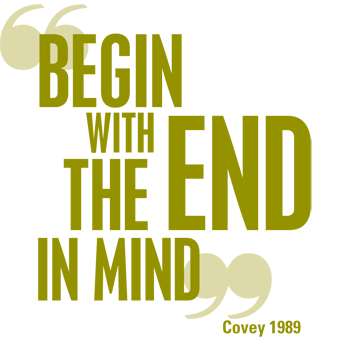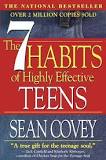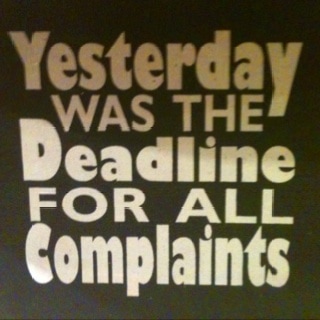 Putting first things first is all about learning to manage ourselves to a higher level. When you put first things first you are working by priorities and not allowing interruptions to knock you off course. We all struggle with the same dilemma. We are caught between the urgent and the important. Urgent items are things that need your immediate attention, such as a ringing phone, your phone beeping with notifications, people interrupting you, etc, Important items have to deal with results. Important items drive you to your values, goals, and overall mission. Author Peter Drucker says, “Effective people don’t solve problems - they pursue opportunities. They feed opportunities and starve problems.” It’s not that effective people don’t have urgent things pop up, they just think in advance and act preventatively so they keep that number down. What can you do to put first things first? Here are a couple ideas:
 Begin with the end in mind means knowing what your goal or desired outcome is in advance. Knowing this helps remind you of where you are and what steps you should take next. I’m sure you know people that are always busy. They frantically run around all day, but at the end of the day, get very little accomplished. Beginning with the end in mind can fix this challenge because you have a clear vision of where you want to end up. When you take the time to set a goal, and you review that goal daily, you are going to take more actions towards the completion of that goal. If you don't know what the desired outcome is, you probably won't take the same purposeful actions. Yogi Berra asked this profound question, "If you don't know where you are going, how will you know when you get there?" This happens when a beginner student goes to the Black Belt Spectacular for the first time. They see what’s possible and others achieving this huge goal. They see the end result and now they know what path they should follow. That one event will drive the beginner to attend class consistently, even when they don't feel like going. Then the student progresses through the ranks, and eventually achieves their goal. Are your goals clearly laid out in each area of life? How frequently do you review your goals so you don't confuse activity with accomplishment? What actions can you take on a daily or weekly basis to help you achieve those goals?  Being proactive means you are responsible for your own life. You are responsible for the achievement of your own goals, dreams, and aspirations. Proactive people don’t wait around for things to happen. They go out and make things happen! In other words, don’t wait - create! A proactive approach to achieving a goal would be listing out everything you need to do in advance, actions you need to take, people you need to talk with, etc. Listing out potential roadblocks that might derail you in advance and thinking of how you will handle them is a great way to stay on track and remain in that proactive mindset. Most people tend to be highly reactive to things that are out of their control. This can cause stress and enormous amounts of frustration. If this becomes habit, it can affect sleep patterns, cause health problems, and damage relationships. Being proactive means we focus on the solution, not the problem. When you focus on the solution to a problem, you become more optimistic, hopeful, and you feel much better. Joe Torre, Hall of Fame Major League Baseball player and manager accredits a lot of his success to his ability to focus on only what he could control. He never let outside factors affect his attitude or thought patterns. Proactive people stack the deck in their favor. They surround themselves with positive, encouraging people, and not naysayers. Naysayers can be like crabs in a bucket. None of them ever get out because they keep pulling each other down. Proactive people do things to keep them feeling positive and optimistic. They exercise regularly, are constantly learning, reading and growing. By doing this consistently, they feel better about themselves and their ability to deal with challenges when they come up. Proactive people still make mistakes, but when they do they handle the mistake in a proactive way. They acknowledge it, correct it, and learn from it. Are you proactive or reactive most of the time? What can you do starting today to become more proactive? Remember, the biggest room in the world is the room for improvement! We all know a person in our lives that cannot stop talking about their problems, challenges, injuries, health concerns, relationship troubles, and much more. They come in and immediately put the focus on them and their tale of woe.
Be honest…do you like being around these people? I’m sure some of them are good friends and you want to help them out. You want to be a good person and listen to them, be a shoulder to cry on, and possibly even offer suggestions. Does that ever help? More than likely, the answer is no! In my experience, this gives them the green light to complain more, sulk more, and put all their troubles on your lap. What if that person accepted 100% responsibility for the position they are in. What if they accepted they are in a tough spot, whether it was their fault or not, and decided they are going to make the best of it with a great attitude. Mike Smith was the head coach of the Atlanta Falcons from 2008 to 2014. In his book, “You Win in the Locker Room First”, he talks about installing a NO COMPLAINING POLICY. Smith says people that complain are energy vampires and will drag a team down. Be careful who you surround yourself with because they may influence your attitude in a bad way and make it difficult for you to achieve your goals. Nelson Mandela was arrested and put in prison for 27 years. Did you ever hear him complain while serving his sentence or after he got out? The answer is NO! When asked what he was doing while serving out his sentence, he said he was preparing. WOW! What a philosophy! Perhaps your challenge involves talking to someone to come up with a solution. Great! Have that conversation that focuses on the solution and not bitching about the problem. Trust me, people are much more willing to help a positive person that wants to come up with a solution instead of a person that wants you to hear that worn out, tired country song about everything that is going wrong in your life. Complaining drains energy. Solutions enhance energy and get people thinking creatively. Focus on the positives and make great things happen! |
Archives
January 2024
|


 RSS Feed
RSS Feed